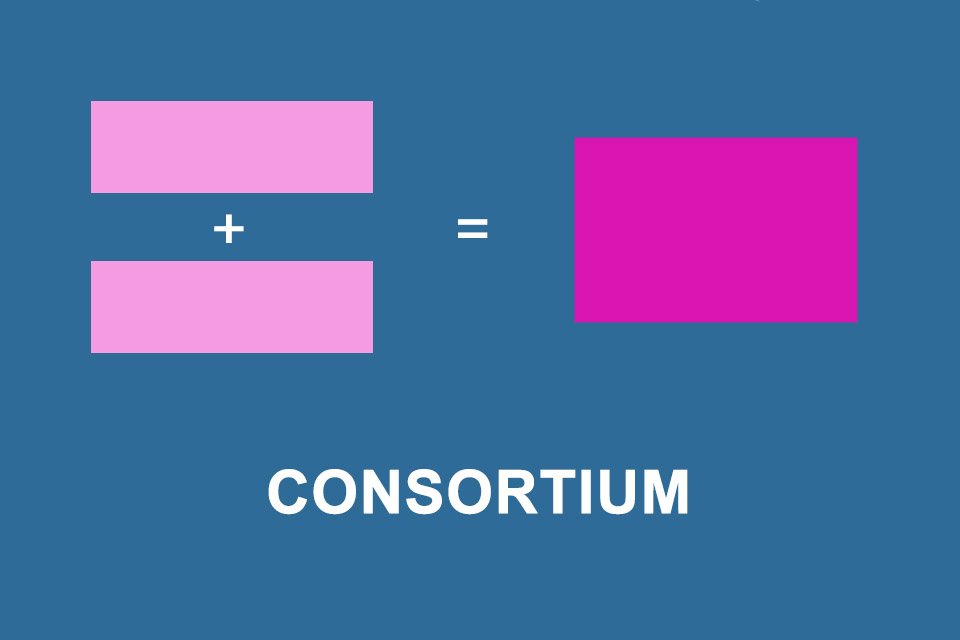What is a Consortium?
Smartpedia: A consortium is a temporary association of equal, economically and legally independent persons to carry out a joint project.
Consortium – cooperation between equal legal persons
A consortium is a temporary association of equal, economically and legally independent persons. As so-called consortia, these legal entities agree on the implementation of a joint project. The legal form of a consortium – also known as syndicate – in Germany is regulated in $705 et seq. of the German Civil Code (Bürgerliches Gesetzbuch – BGB); accordingly, it is also referred to as a BGB company.
Consortium types
Two types of consortia can be distinguished:
- the external consortium or the open consortium, in which all members are known and the agreement is concluded between the joint client and all members.
- the internal consortium or the silent consortium, in which all consortia enter into an equal business relationship with the customer or client, but the syndicate as a whole is generally represented externally by only one of the consortia – the so-called consortium leader – in a legally binding manner. The latter is often entitled to conduct negotiations on behalf of the joint cooperation, to make agreements, to distribute tasks between the partners or to issue invoices to the customer.
In practice, the differences between the types are fluid and it makes sense to appoint a common leader for the purpose of efficient communication with the customer. Irrespective of the type, the services and capabilities that the consortia bring to the partnership must be agreed individually.
Consortium forms
In addition to the types, there are also different forms of consortia:
- In the case of a bidding consortium, the organisation tries to win the contract for a service put out to tender, often in the form of a tender.
- In the case of a bank consortium, the syndicates try to establish joint project financing with simultaneous risk minimisation or risk distribution.
- In an industrial consortium, consortia from one industrial sector work together and define standards, for example. Examples include the World Wide Web Consortium (W3C), the Object Management Group (OMG) and the HR Open Standards Consortium.
In the case of public-sector construction contracts, individual companies are often asked to form a cooperation between equal legal persons in order to guarantee the required capacities and securities. In the construction industry, these consortia are referred to as ARGE (which stands for the German term Arbeitsgemeinschaft).
In reality there are consortia in many sectors and industries. For example, there is a consortium
- for distributed server storage,
- of the Swiss university libraries,
- for networked cars,
- for organic plant breeding
- for Translational Cancer Research,
- for fuel cells,
- for open high-performance interconnect
- …
The list can be easily extended. This alone indicates that the syndicate is a popular instrument for cooperation between equal, economically and legally independent persons.
Notes:
Here you will find additional information from our Smartpedia section:



